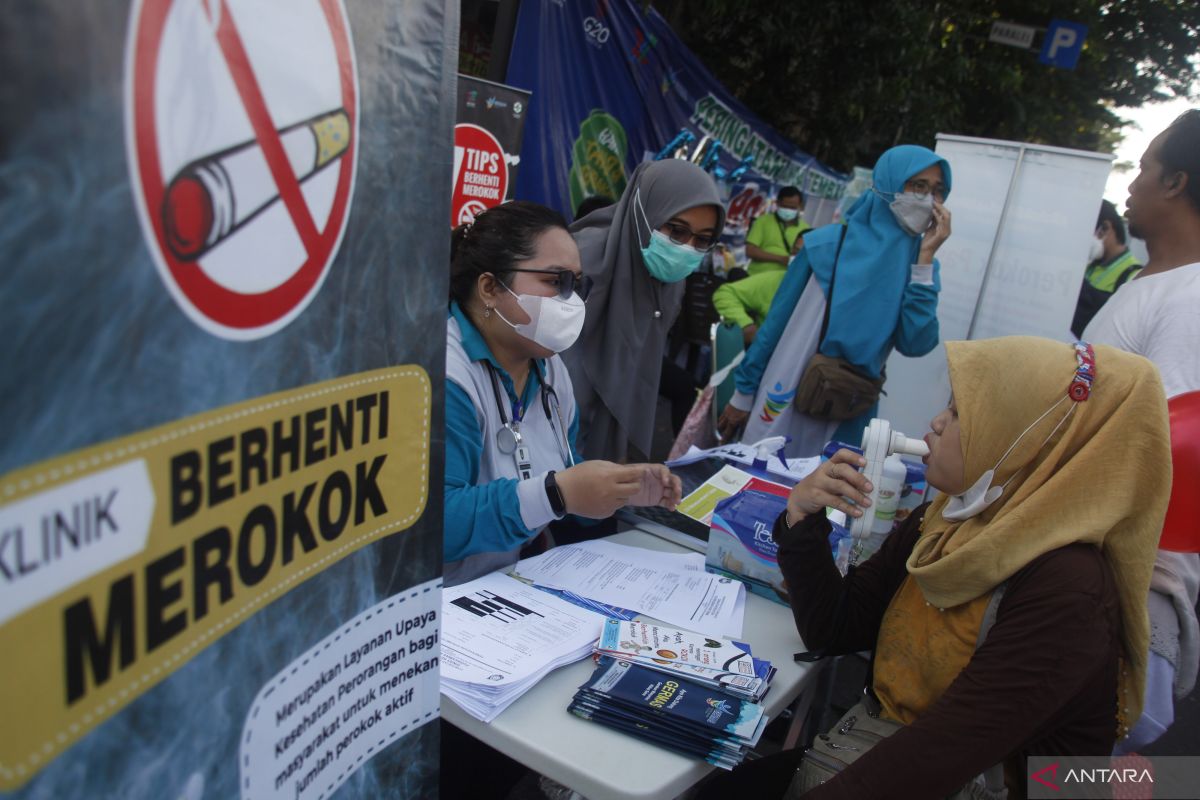“Effects of (cigarette) smoke have been proven. Everyone agrees, just like what results (of research), say, meta-analysis or statistics review. Everything shows that cigarette smoke caused stagnation in fetus growth. Scientifically, (the link) between cigarette and fetal growth had been proven, and (the impact) is very significant," BKKBN Head Hasto Wardoyo noted in his written statement, received here on Friday.
Wardoyo remarked that pregnant women, who were exposed to cigarette smoke (passive smokers) or smoked cigarette would in turn compromise the distribution of nutrition or oxygen to the fetus.
This would pose a higher risk of stunting in children, as the baby could be born in a premature condition or be underweight, all of which were factors that contributed to stunting.
According to data from the basic health research in 2018, some 22.6 percent of babies were born with length no more than 48 centimeters, while 29.5 percent were born premature.
Other problems arising from cigarette include the use of tobacco, which killed at least 290 thousand people annually, and caused 33 cigarette-related ailments, resulting in 230,862 deaths in 2015.
Cigarette also caused most deaths from non-transmitted diseases. The macro loss reached up to Rp596.61 trillion
Hence, Wardoyo urged family members, who smoked, to maintain safety of women and children at home by not smoking in the presence of the mother.
"If we prevent people from smoking, most likely we fail. However, if we prevent people from smoking, most likely it will succeed. Thus, it is better if we prevent it through ensuring no new smokers or these children," he added.
Head of the Tobacco Control Support Center at the Indonesian Public Health Association (IAKMI), Sumarjati Arjoso, pointed to an increase in the number of smokers among children below 18 years of age.
Based on the data held by Arjoso, three out of four children had begun smoking before they were 20. In 2013, the national prevalence of child smokers had reached 7.20 percent. However, it significantly increased in 2019 and was recorded at 10.70 percent.
"Should it not be put under control, the prevalence of child smokers would rise up to 16 percent in 2030," she cautioned.
Chairman of the Indonesian Public Health Association, Ede Surya Darmawan, urged the government to revamp Government Regulation Number 109 of 2012 on addictive substances and protection of children from smoking products.
Darmawan drew attention to some rules that should be considered, such as creating rules on selling singular cigarettes and prohibiting advertising, promotion, and sponsorship of cigarettes through various mediums, both outdoors and indoors as well as in the media.
Related news: Ensure no cigarette advertisements, stalls near schools: Ministry
Related news: BPKN backs regulations for alternative tobacco products
Translator: Hreeloita D S, Mecca Yumna
Editor: Rahmad Nasution
Copyright © ANTARA 2022












